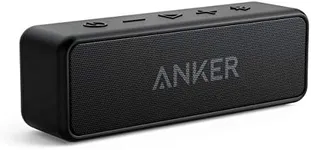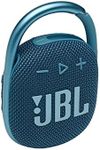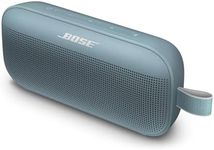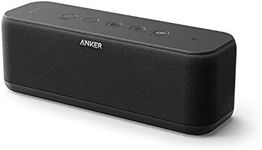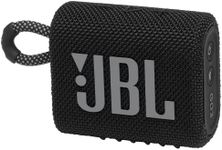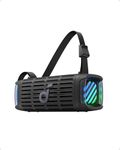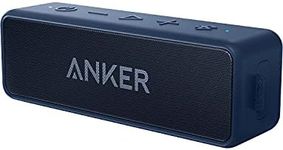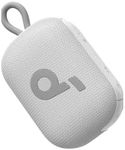Buying Guide for the Best Mini Portable Speakers
When choosing a mini portable speaker, it's important to focus on how and where you plan to use it. Think about whether you'll be carrying it in your bag, using it outdoors, or just moving it around the house. The right speaker should balance sound quality, portability, and battery life to fit your lifestyle. Understanding the key features will help you make a choice that matches your needs and ensures you get the most enjoyment from your music or podcasts.Sound QualitySound quality refers to how clear, balanced, and loud the audio is from the speaker. This is important because even a small speaker should deliver enjoyable music or voice playback. Mini speakers often have smaller drivers, so they may not produce deep bass or very high volume, but you can still find models that sound crisp and pleasant. If you mostly listen to podcasts or audiobooks, clarity is more important than bass. For music lovers, look for speakers that mention enhanced bass or stereo sound. Try to listen to a demo if possible, or read reviews to get a sense of the sound profile.
Battery LifeBattery life tells you how long the speaker can play before needing a recharge. This is crucial if you plan to use the speaker outdoors or away from power sources. Battery life can range from a few hours to over 20 hours on a single charge. If you only use the speaker for short periods, a lower battery life may be fine. For long trips or all-day use, look for longer battery life. Remember that playing at higher volumes can drain the battery faster.
Portability and SizePortability is about how easy it is to carry the speaker with you. Mini speakers come in various sizes and weights, from pocket-sized to slightly larger but still easy to carry. If you want something to slip into your pocket or attach to a backpack, go for the smallest and lightest options. If you don't mind a bit more bulk for better sound, a slightly larger mini speaker might be a good fit. Consider how you'll transport it and whether it needs to fit in a specific bag or space.
ConnectivityConnectivity refers to how the speaker connects to your devices. Most mini portable speakers use Bluetooth, which is convenient for wireless use. Some also offer an auxiliary (AUX) input for wired connections, or even support for memory cards. Bluetooth versions can affect range and stability; newer versions usually offer better performance. If you want to connect to multiple devices or use the speaker with non-Bluetooth gadgets, check for extra input options.
Durability and Water ResistanceDurability is about how well the speaker can handle bumps, drops, or exposure to water and dust. This is especially important if you plan to use it outdoors, at the beach, or by the pool. Many mini speakers are rated with an IP (Ingress Protection) code, which tells you how resistant they are to water and dust. For example, IPX4 means splash-resistant, while IPX7 means it can be submerged in water for a short time. Choose a level of durability that matches your activities—higher ratings are better for outdoor and active use.
Controls and FeaturesControls and features include things like play/pause buttons, volume controls, built-in microphones for calls, and pairing options. Some mini speakers also have features like voice assistant support or the ability to pair two speakers for stereo sound. Think about which features will make your experience easier or more enjoyable. If you want to take calls hands-free, look for a built-in microphone. If you like to control music directly from the speaker, make sure it has easy-to-use buttons.
